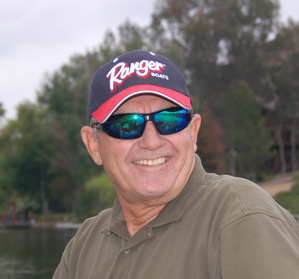 Twice in my career I’ve been excluded from covering the BASSmasters classic. (Well, maybe three times now if you consider ESPN all but ignores the print media.)
Twice in my career I’ve been excluded from covering the BASSmasters classic. (Well, maybe three times now if you consider ESPN all but ignores the print media.)
The first time I had my invitation revoked it was because I criticized the old guard press corps--said they shouldn’t be allowed to fish during the competition. From the first Classic back in 1971 at Lake Mead, media observers were paired with the pros and called press anglers, casting from the back seat.
Ignorantly, in my very first event in 1981, I brought my rods and I fished. In fact, I fished way better than I ever imagined—and rather dusted my esteemed pro partner. But it didn’t take long for me to figure out how I had impacted the outcome—most certainly for my pro partner.
Although he may or may not have caught the same fish I caught, or used the lures or methods I did, I most certainly threw a monkey wrench in his thinking and planning. Although he still salvaged a top 10, first day result, he got frustrated to a degree and never returned to the creek where I (his unthinking press partner) had caught 16 bass.
And my foolish error and his decision to move were compounded by the fact both first and second places that year came from that same creek.
Within the next several seasons I went nose-to-nose with the other writers saying no other sporting event lets the press participate. We don’t line up puts at Augusta National and we don’t warm up at Wimbledon. We most assuredly shouldn’t fish during the world championship.
The old press guys complained. Boom, I’m out for nearly three years.
Back in the Carolinas years later, Brian Kerchel was leading the Classic after two days. At an elevator going back to my room I turned to another writer and said, “It will be dark day for professional bass fishing if this amateur wins.”
Of course, I hadn’t noticed that surrounding me were half a dozen Federation presidents who went nothing short of ballistic. I subsequently got more death threats than the Israeli Prime Minister—and B.A.S.S. responded by leaving me out for another three years.
Of course, I was right both times. Nothing is more out of place than some part-time, wanna-be performer taking a back door entrance into the world championship. It’s absurd that a guy could somehow outlast a large, but suspect pool of fishing talent under a totally different format than the pros, and yet find his unqualified presence, bobbing around with puncher’s chance at the world title.
Ray Scott established professional bass fishing, but he didn’t really believe in it. Otherwise, he would never have said, “A professional bass fisherman is a guy with his $300 entry and a week off.” Sure the price has gone up, but the principle is obvious.
If bass fishing was ever going to become a professional sport, it was going to have to treat its performers as professionals. The top guys earned their position by fishing under the same controlled circumstances and rules on the same diverse waters and by virtue of their fishing virtuosity, to gain credibility and the public’s respect.
I don’t know the go-kart and midget racing champions, but I’ve heard of the top NASCAR drivers. For the same reason, neither the public nor I care a hoot how some Federation guy rigs his worm. The fact that no California Federation angler has ever made the Classic is even further reason I know these guys have nothing to offer.
Forgive me, but I think I’ll interview Skeet Reese, Aaron Martens or heaven forbid, my esteemed local-of-all-locals, Gary Dobyns. These guys are on another planet when it comes to performance, day in and day out. If I want to make a point in a story, I’m talking to these experts.
So maybe now professional bass fishing is actually going to turn professional. ESPN, I hear, is asking the questions I asked a decade ago. “Why are these amateurs in the world championship?” And, “Who are these guys?”
When B.A.S.S. was a chummy, good ol’ boy, grass roots membership, it was fine to have those club guys driving shuttle vans and towing vehicles and hosting kids casting derbies. But ESPN does sports—and in the case of bass fishing—professional sports and all that entails.
There is no place for the amateurs. Likewise, there is no recognition or allowance for those fishermen who want to be treated like pros, but only have four weeks vacation and a little kid’s dream of stardom. Yeah, I’m sure you’re just as good as Kevin Van Dam. But let’s just keep that our little secret.


 Advertising
Advertising